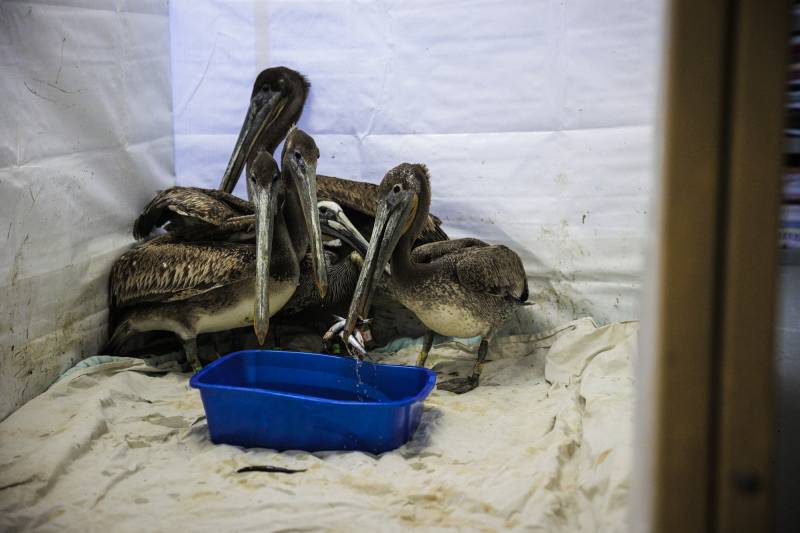Dozens of malnourished and injured brown pelicans are turning up along the Northern California coastline.
Russ Curtis, a spokesperson for the nonprofit organization International Bird Rescue, said the organization has also recovered sick pelicans in Southern California. Since April 20, the organization has cared for more than 235 pelicans at its wildlife rescue centers in Fairfield in the Bay Area and San Pedro in Los Angeles.
“They’re in really poor physical shape. They’re starving, and they haven’t gotten enough nutrition,” Curtis said in an interview with KQED. Some of the injuries are from fishing lines and hooks.
“When there’s not the fishing stock that they can find, they take chances around fishing piers and fishing boats and places where there are people with fishing tackle,” he continued.
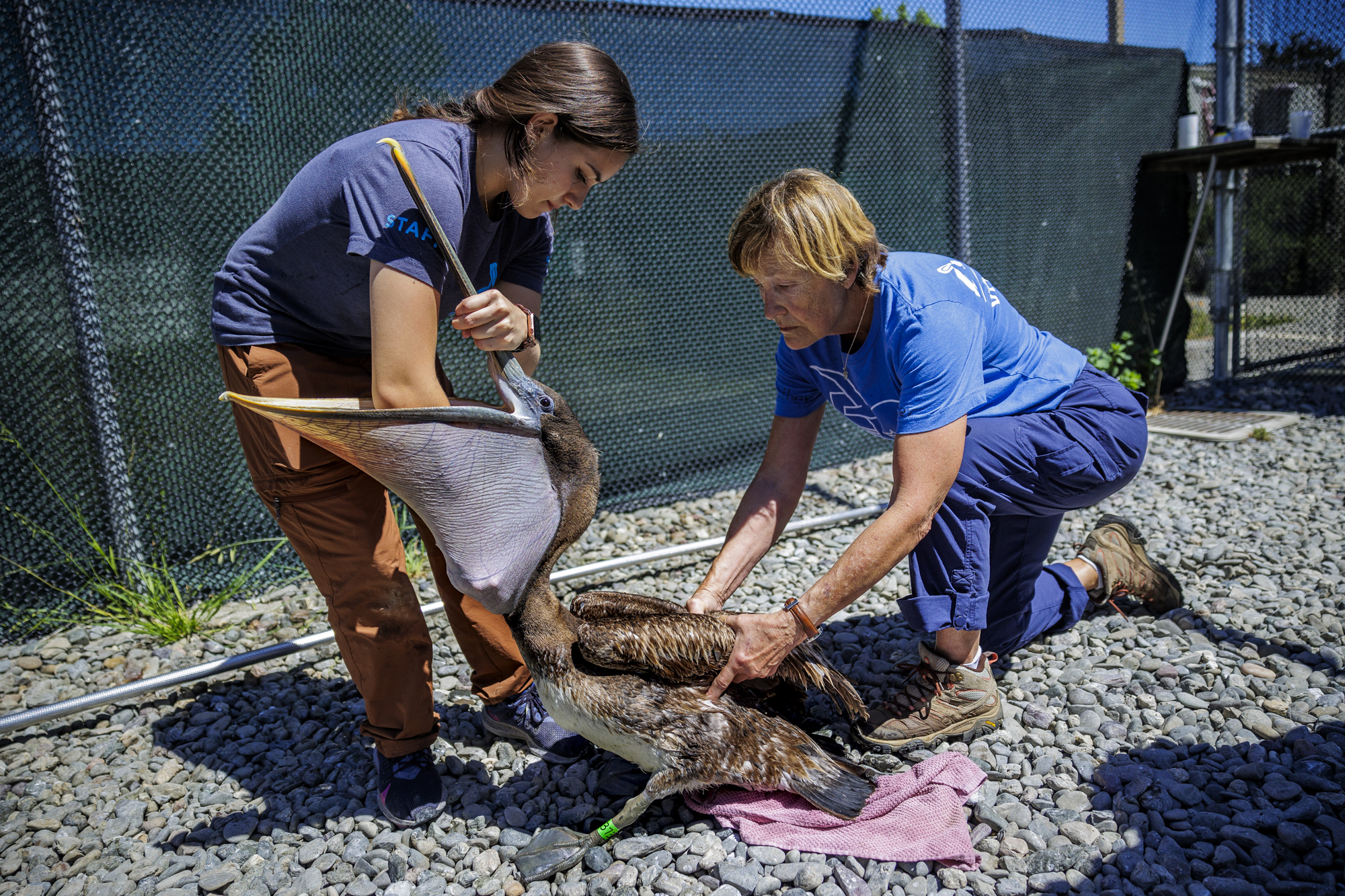
Sick birds have been spotted off Alameda Point in the Bay Area, which is a roosting ground for brown pelicans. But many were found where people usually don’t find these stocky, large seabirds. On city streets and parking lots, for example. One bird in Santa Cruz attempted to walk into a bar, Curtis said. The majority of pelicans at the Fairfield center came from the Monterey and Santa Cruz areas.
It’s not clear why the birds are having trouble finding food.
“It’s still a mystery,” Curtis said. “We haven’t had any conclusive proof of what’s really going out in the wild right now.”
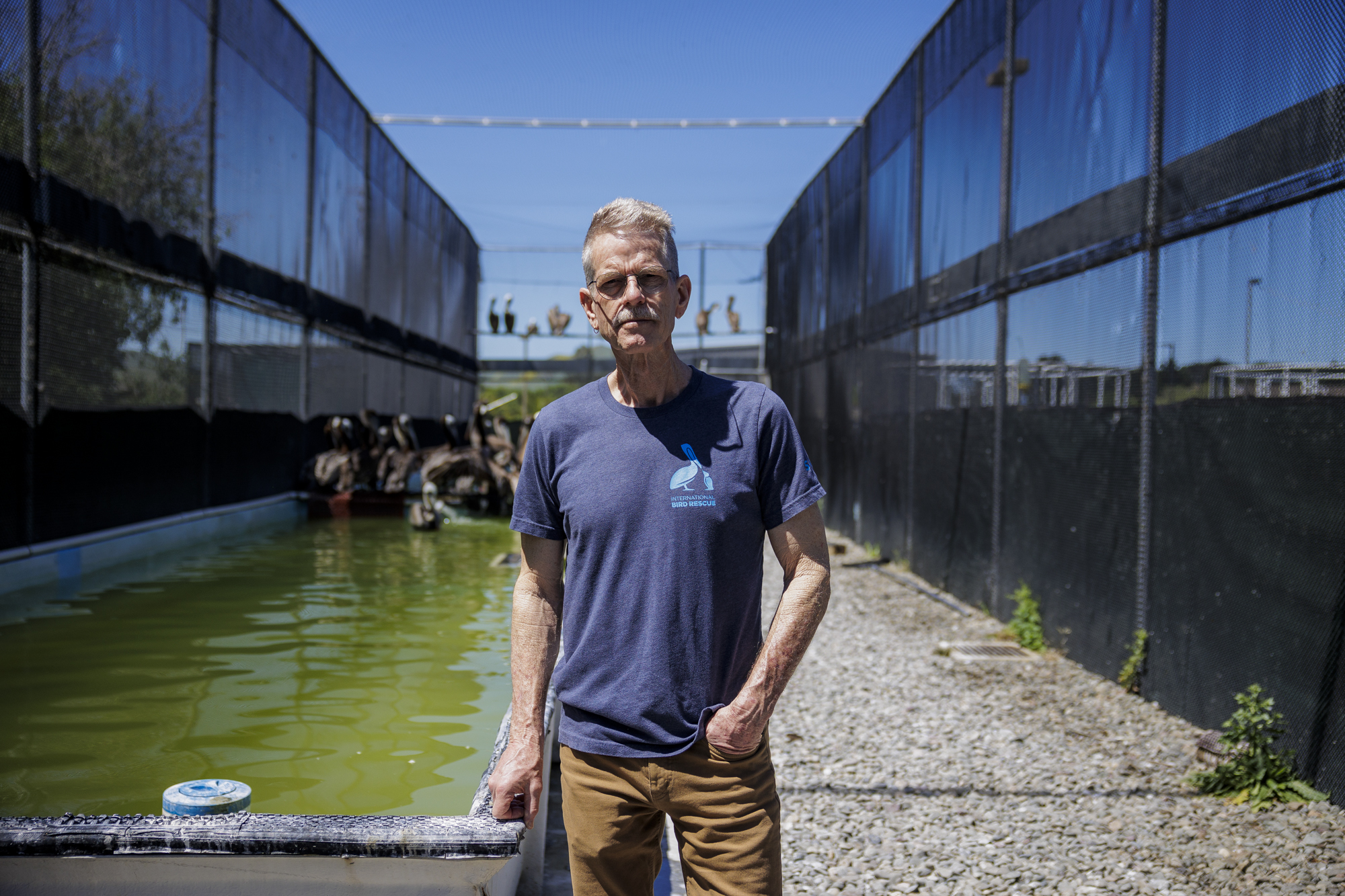
The Los Angeles Times reported there was a similar spike in malnourished brown pelicans along California’s coast in 2022, with no clear cause. International Bird Rescue reported other spikes in starving brown pelicans in 2010 and 2012.
During these prior incidents, International Bird Rescue cared for pelicans for weeks.
“We’re not going to release them back out to an area where there is not proper fish stock for them to feed on,” Curtis said. “They would just rebound and probably come back into care at some point.”
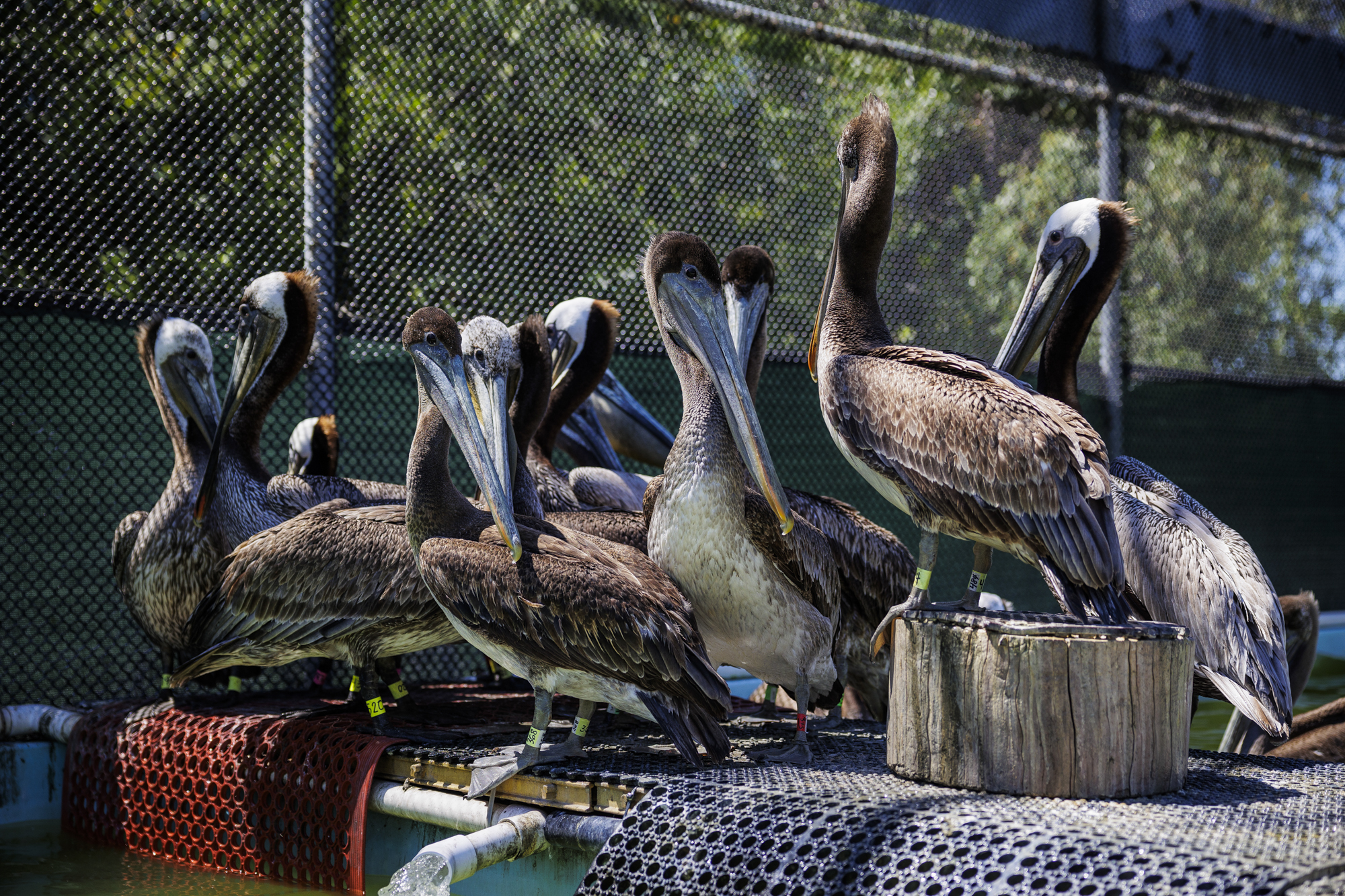
While they wait for more information, Curtis said wildlife rescue centers like theirs — which rely on public donations — are feeling a financial squeeze.
“At this point, we’re going through about 500 pounds of fish a day just at this center, and that’s about $1,000 a day,” he said.
Curtis said the public can help by keeping an eye out for unwell brown pelicans.
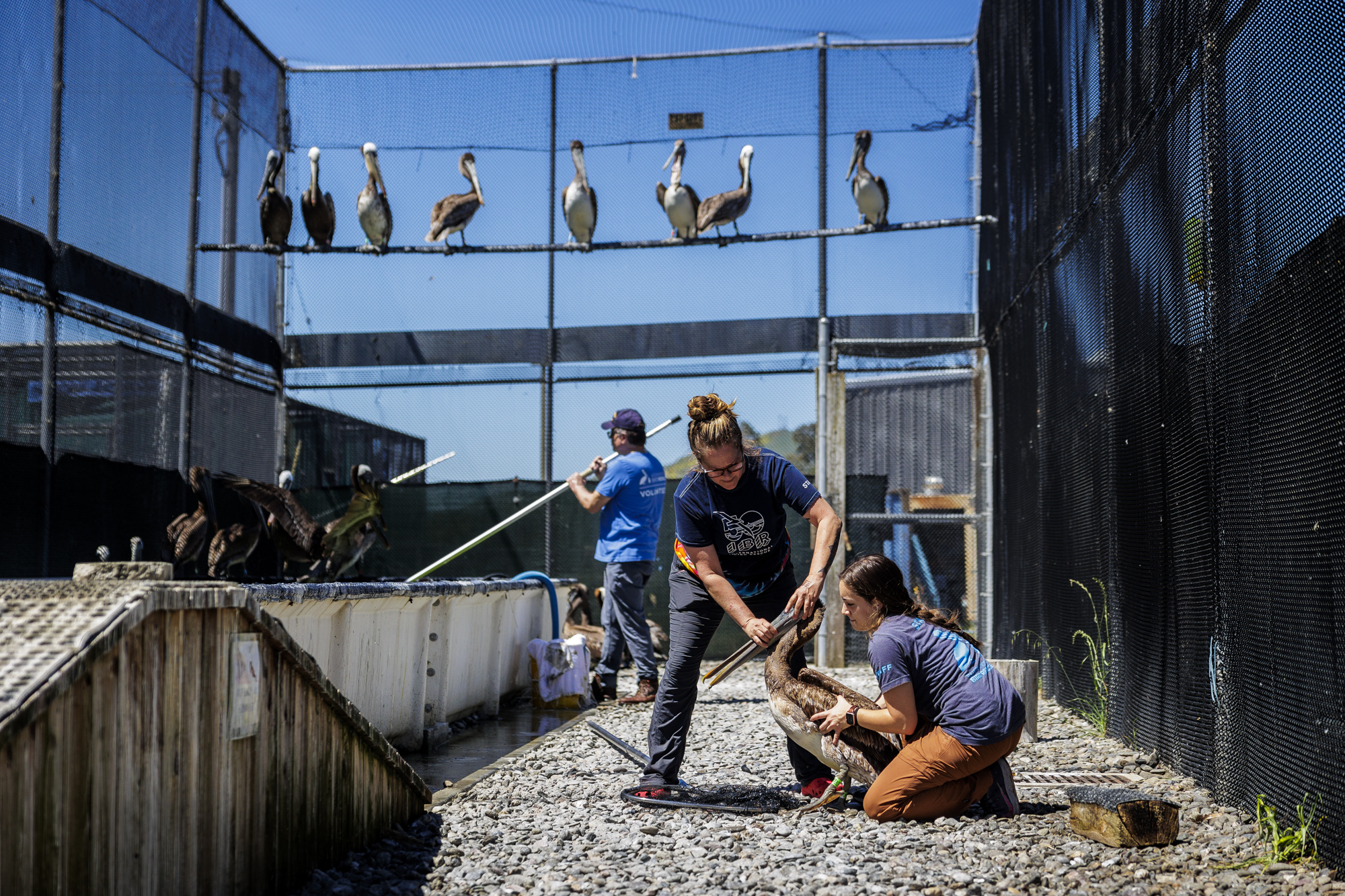
“As you enjoy the warm weather and you’re at the beach or along the coast, if you see a pelican that’s out of place or might have a fishing line injury, if you see something, say something,” Curtis said. “Let your local animal control know that there’s a bird in distress, and let’s get it into care as soon as we can.”
If you see an injured or unwell pelican, you can reach International Bird Rescue’s Bird HelpLine at 866-SOS-BIRD or get help by calling your local animal control.
